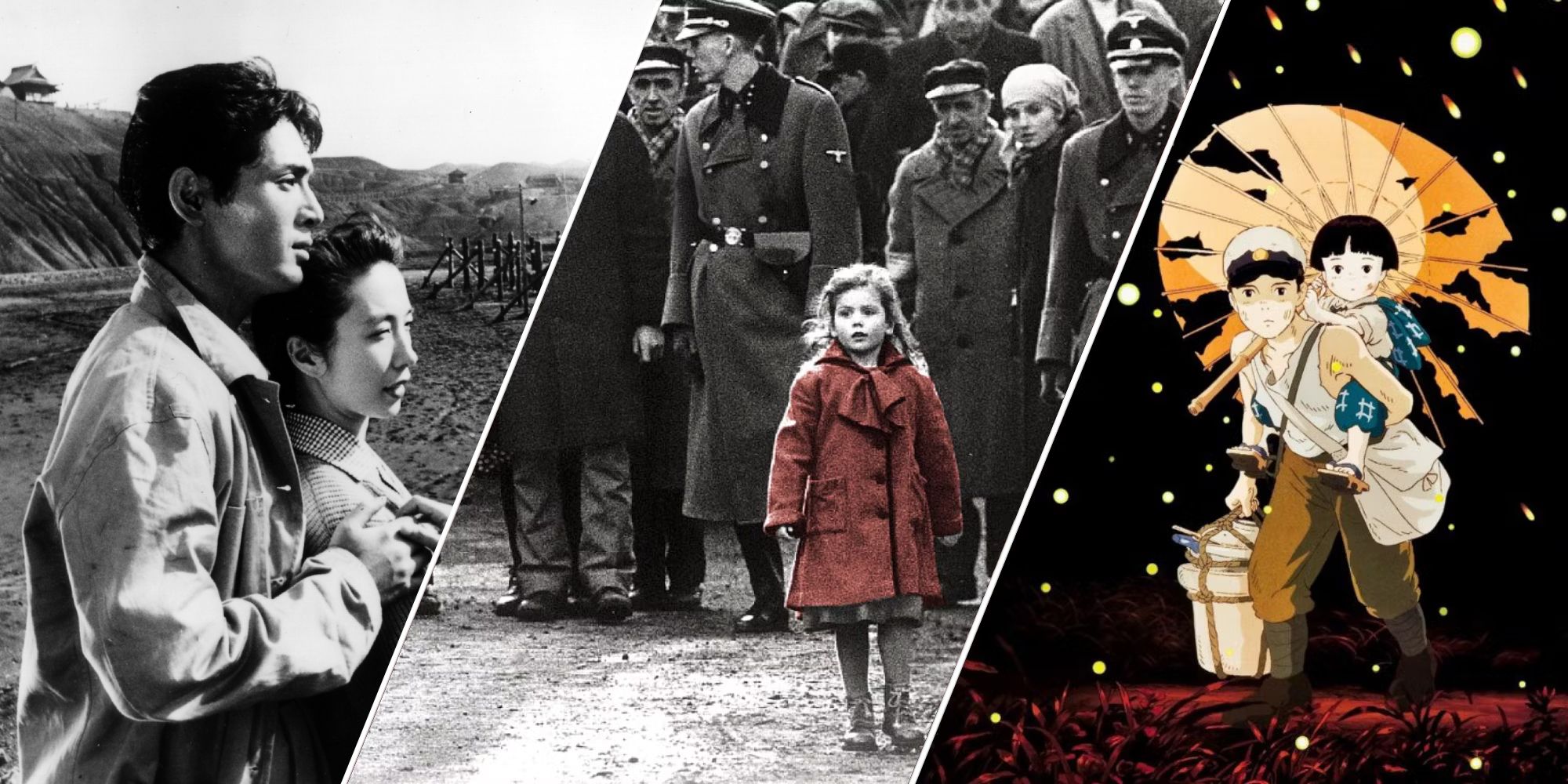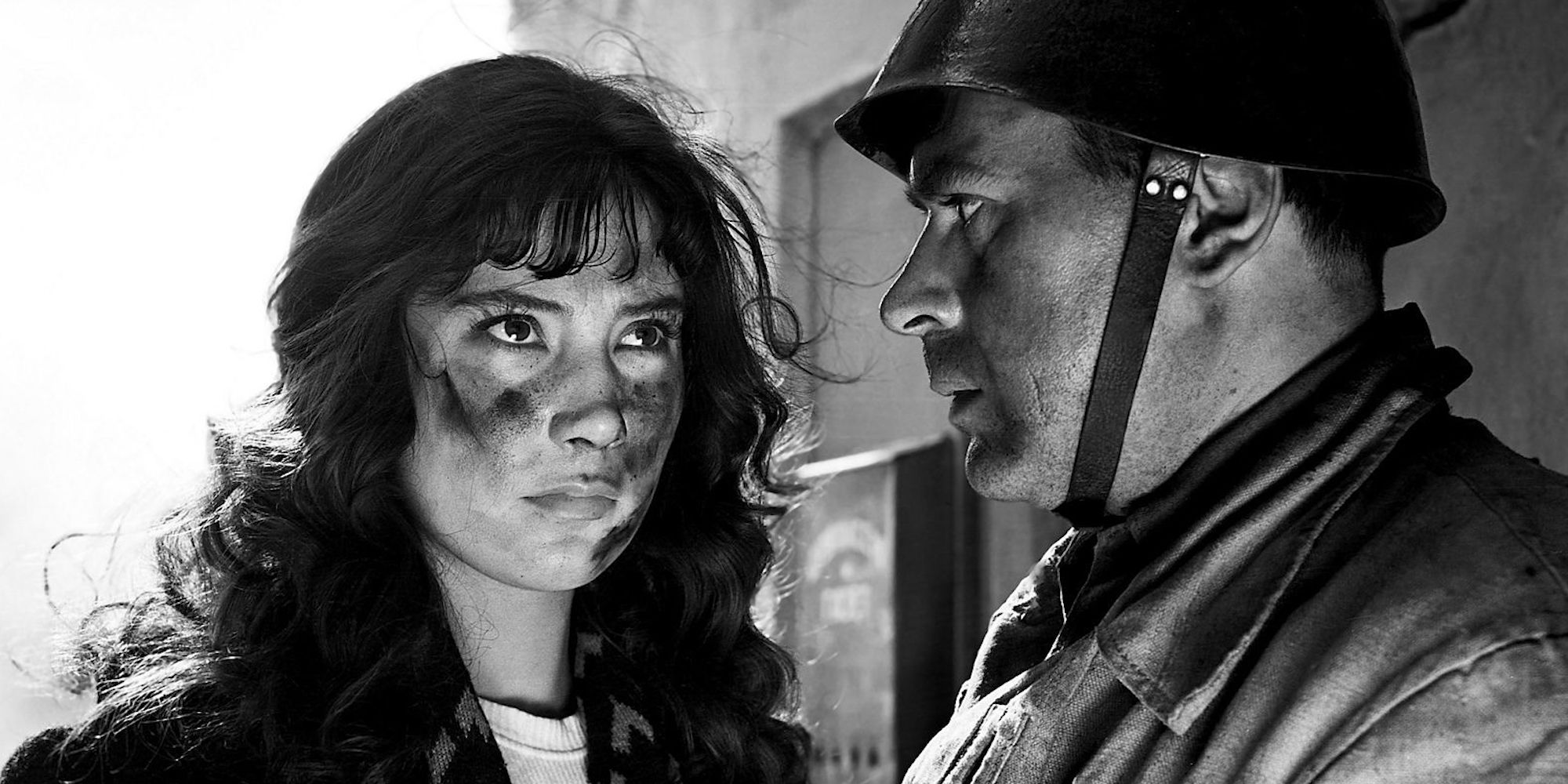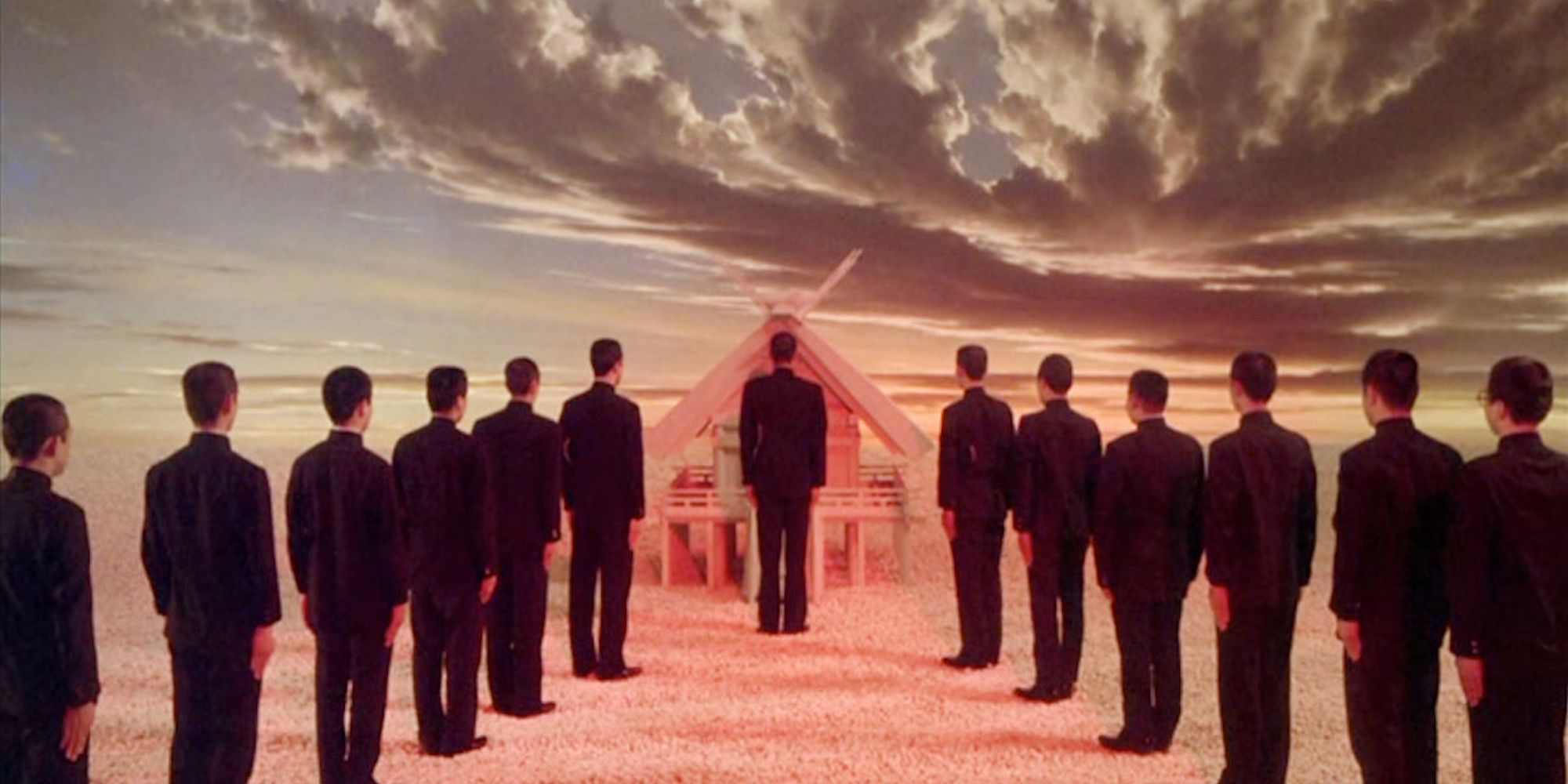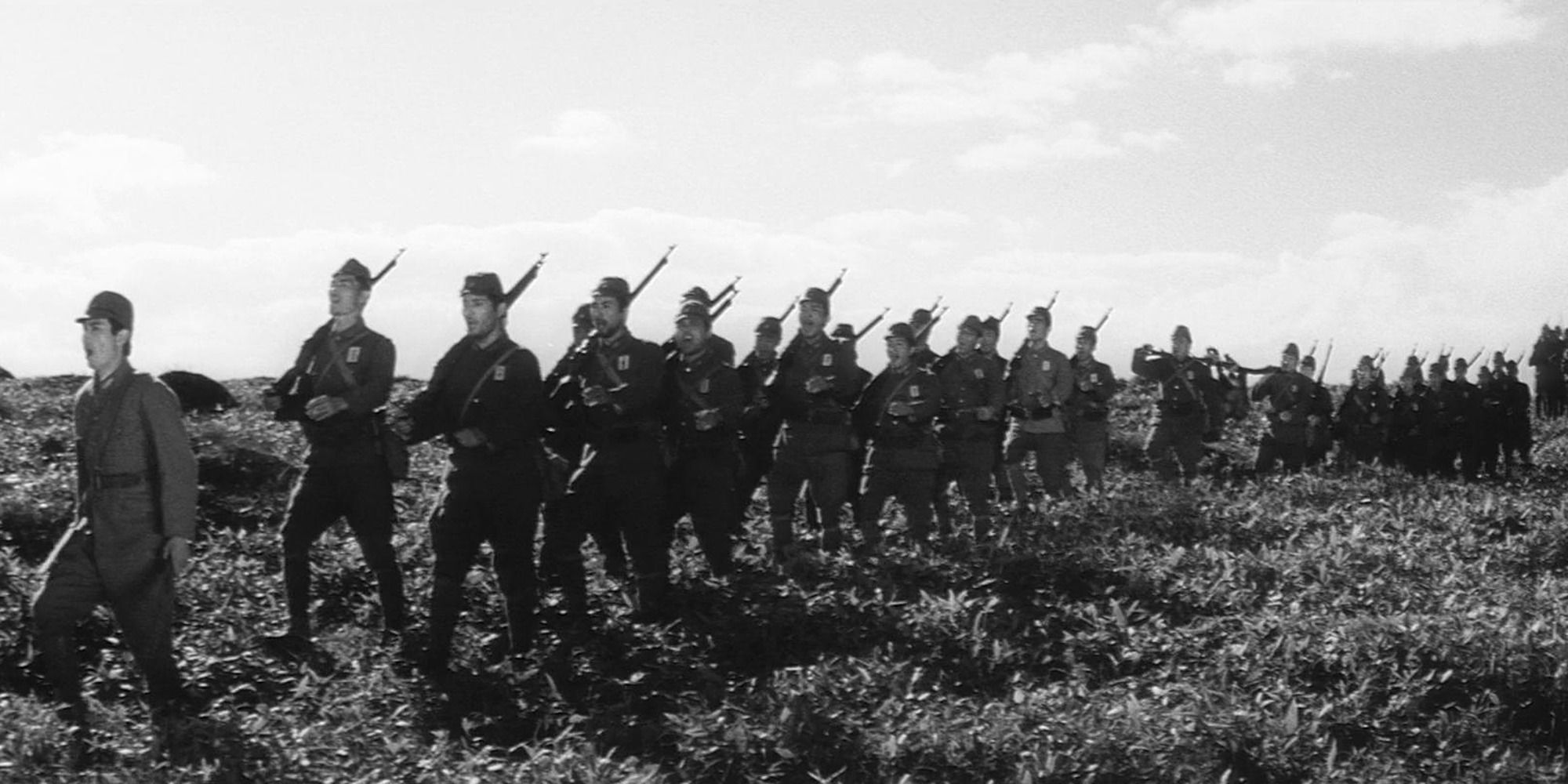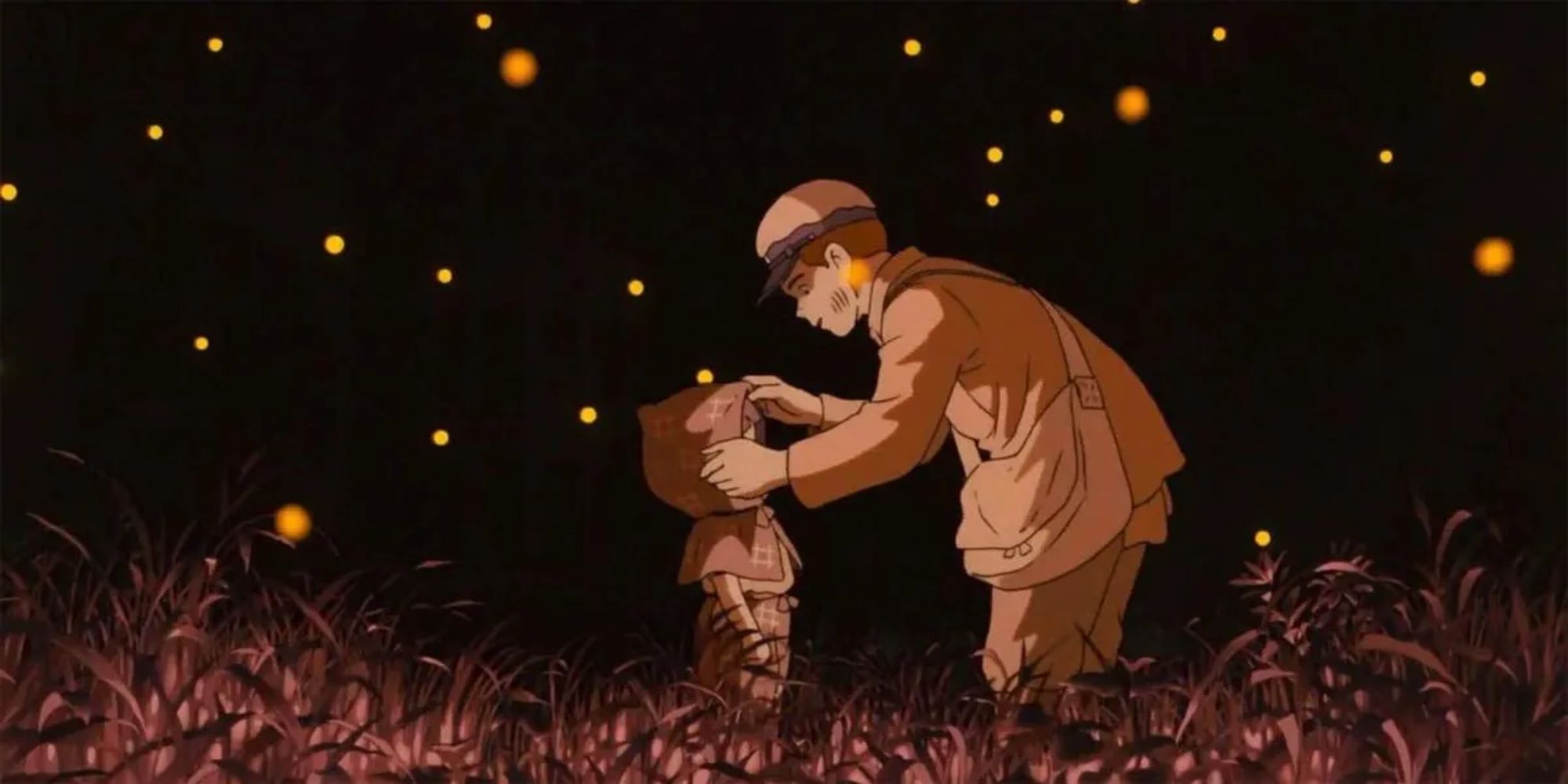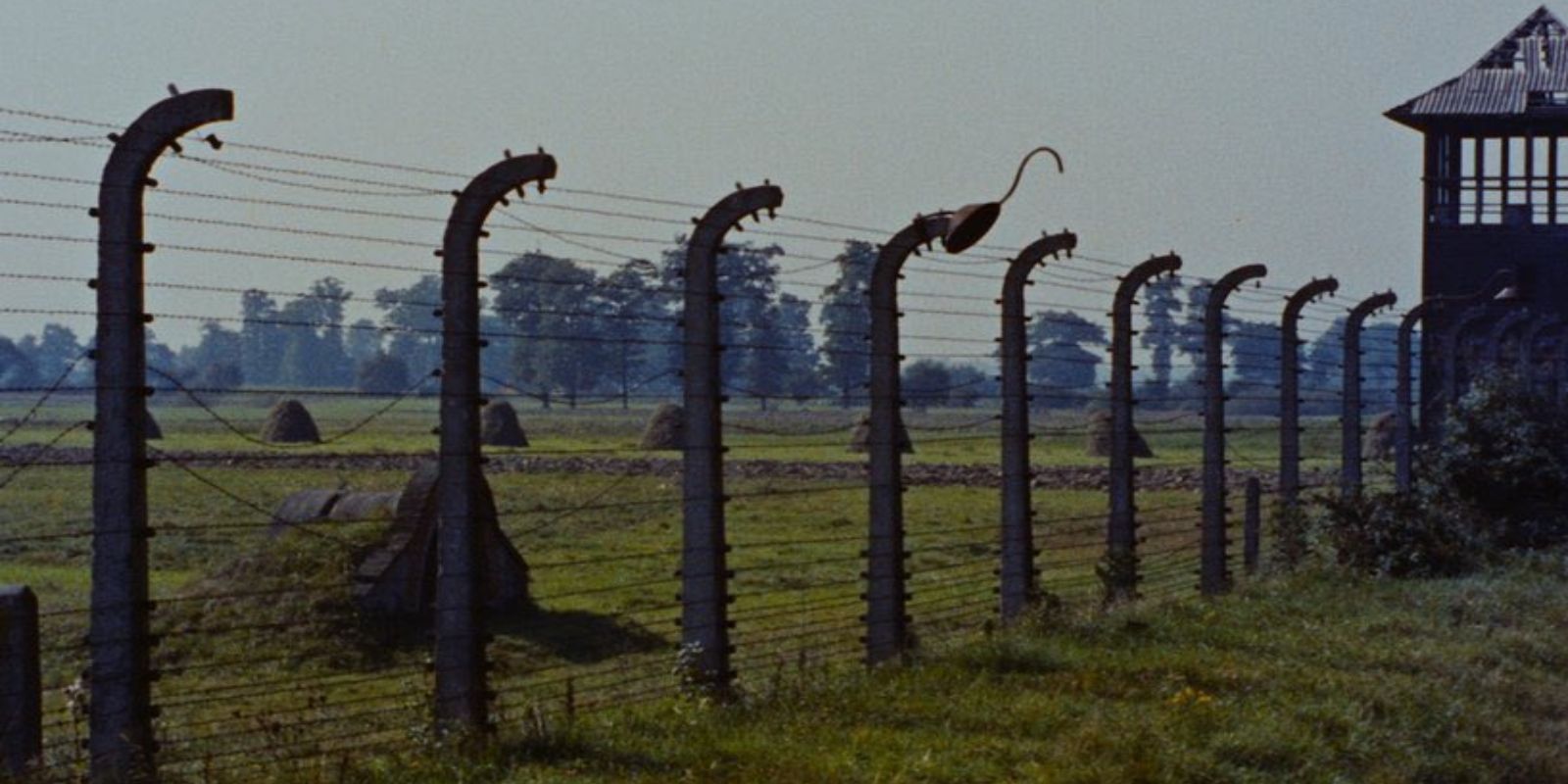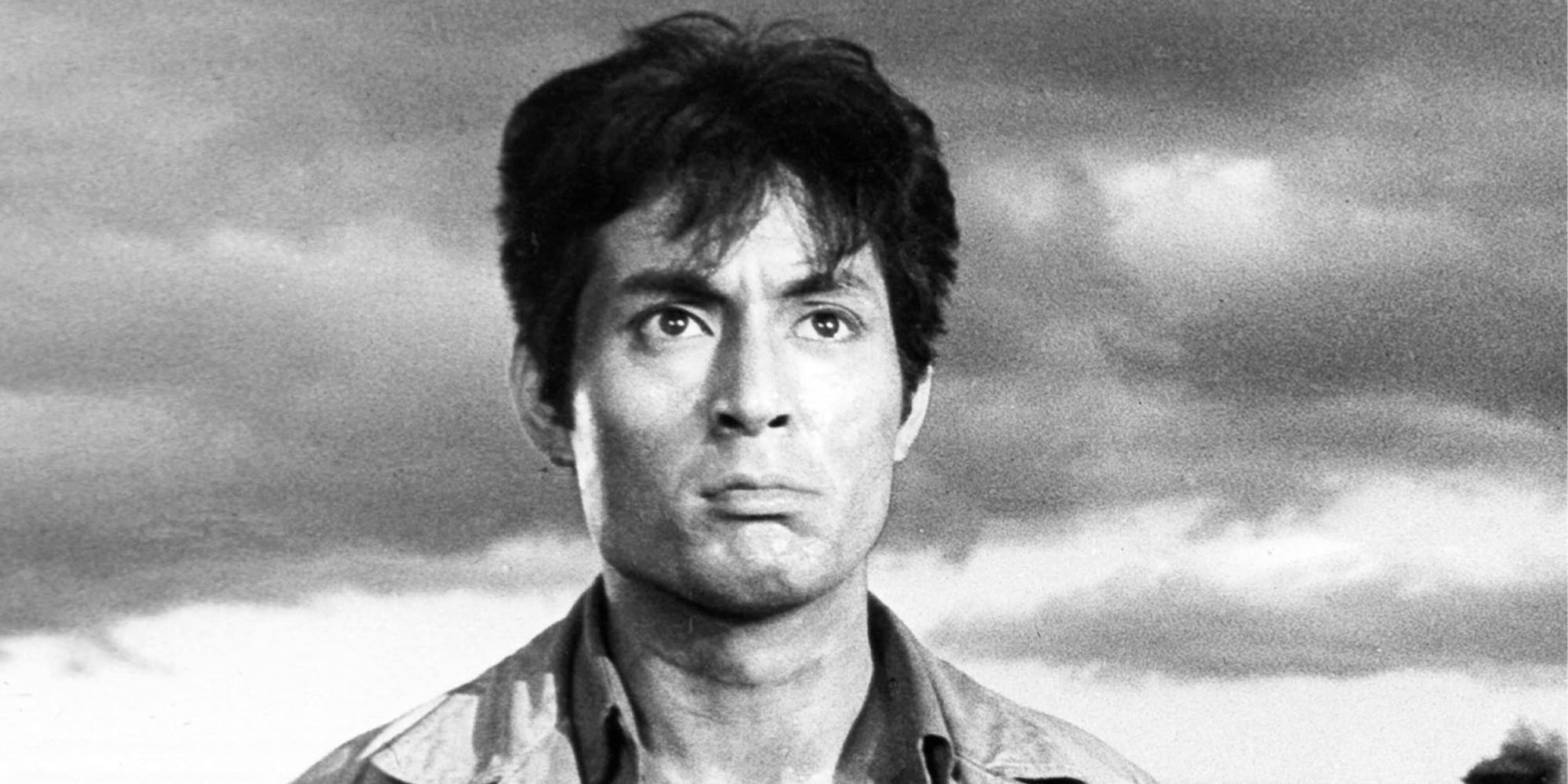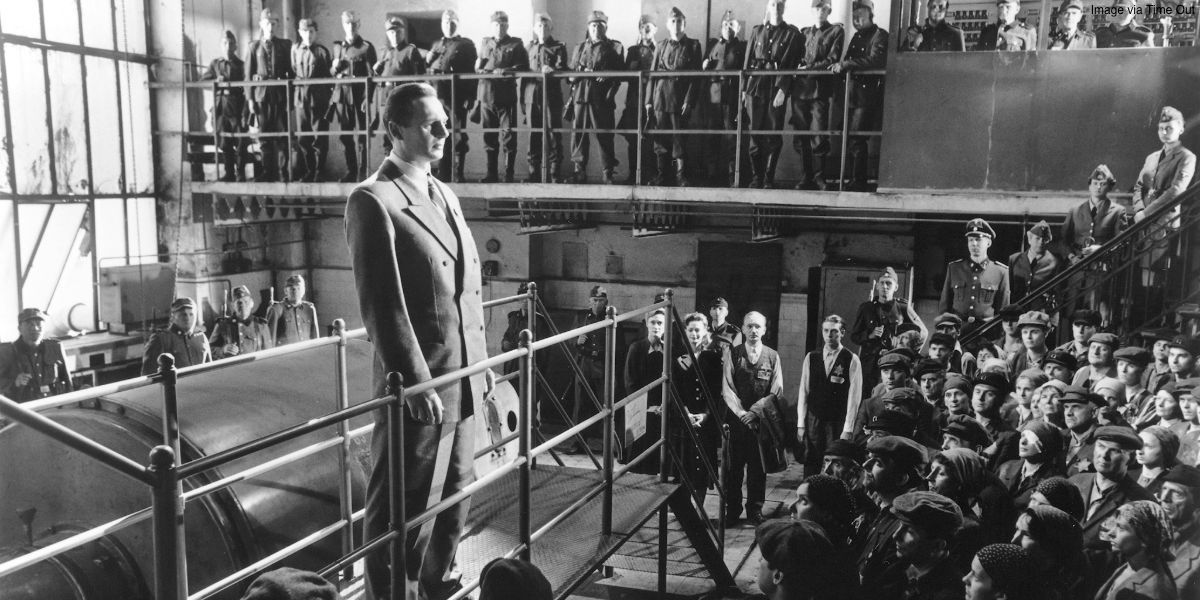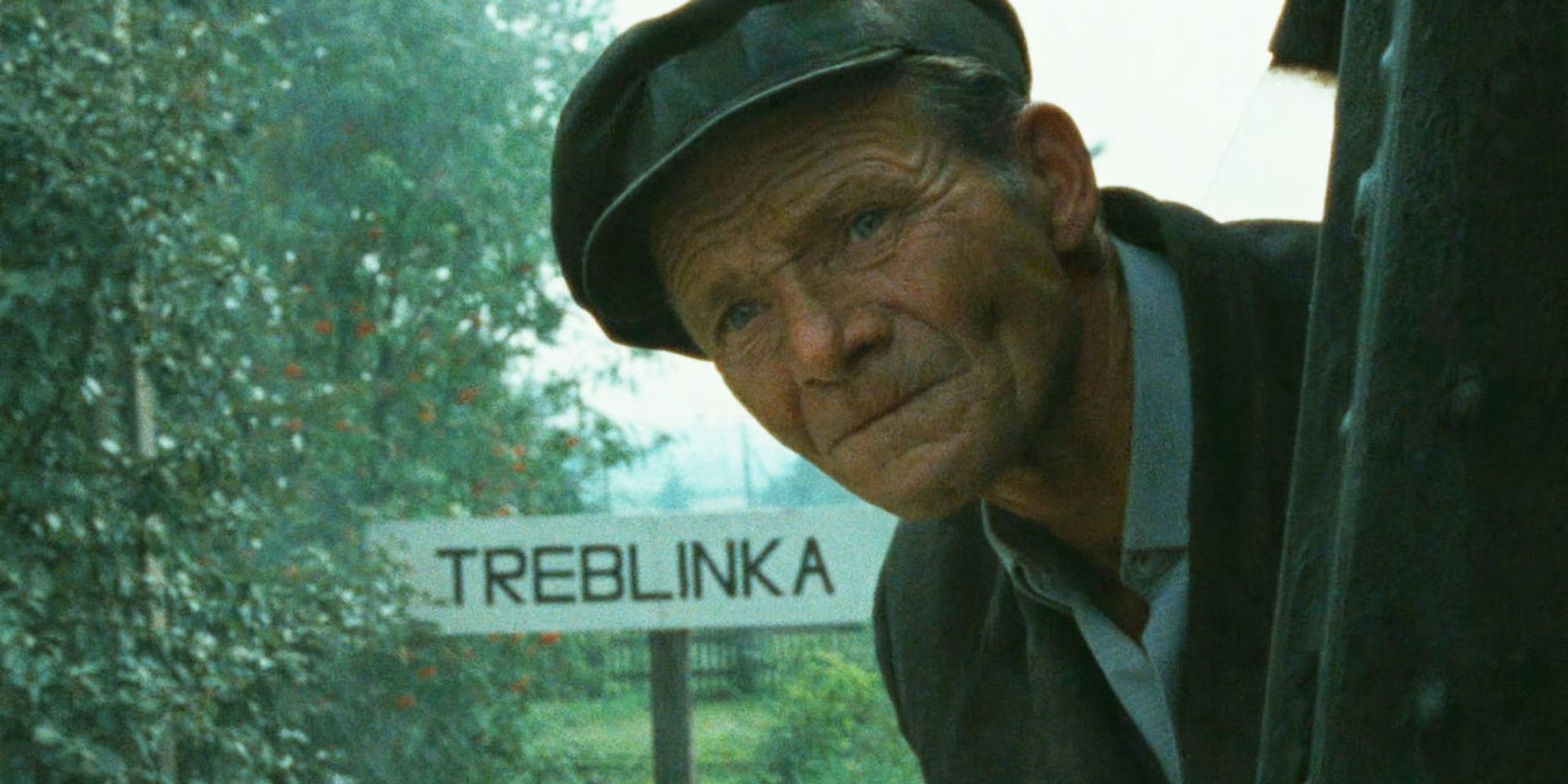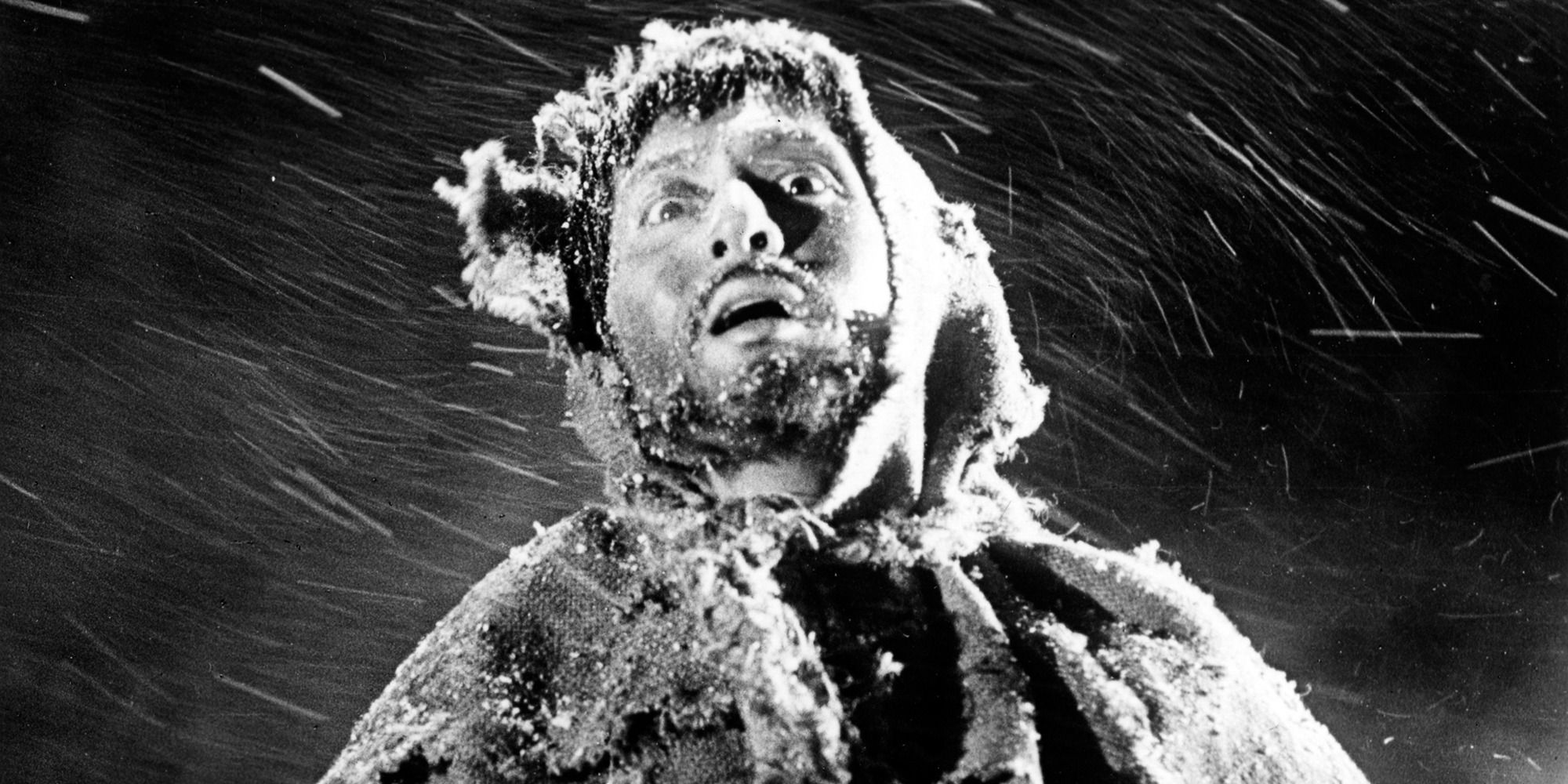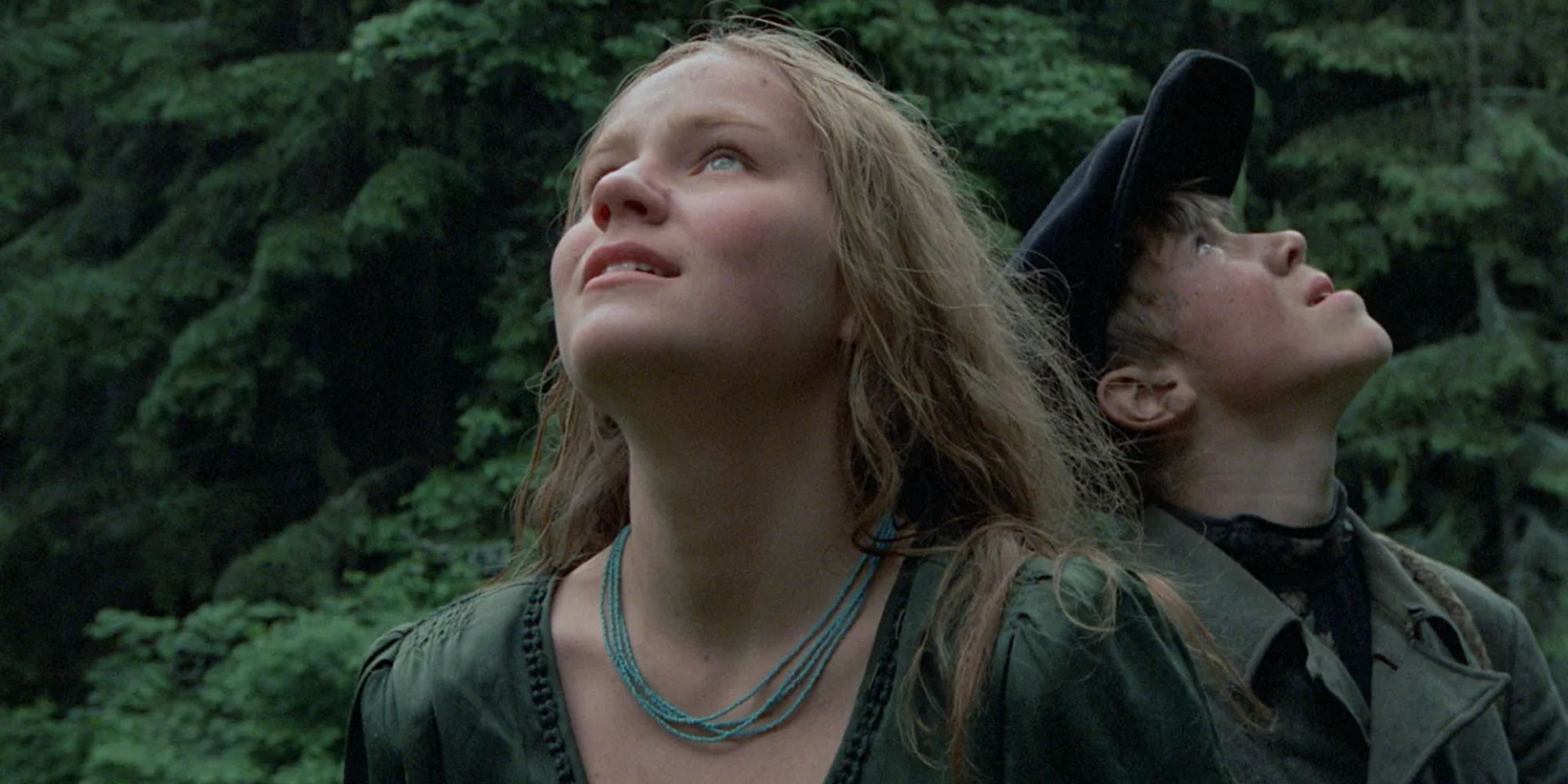Of all the various wars that have been depicted on film, none seem quite as ubiquitous as World War II. With an estimated 75 million casualties between 1939 and 1945, it's the deadliest war in recorded history, and in one way or another, impacted everyone who lived through it (and many born in the years following its conclusion). For its devastation and truly international scale, it's understandable why so many filmmakers have explored it through cinema.
The following movies are some of the best that tackle World War II, and are ranked below by their average ratings on Letterboxd. They represent a diverse range of perspectives on the global conflict, with each providing powerful viewing experiences for those who are looking for impactful, eye-opening, and expertly-made war movies.
10 'The Cranes Are Flying' (1957)
Letterboxd Rating: 4.3/5
The Cranes Are Flying is a Russian movie that tells a story about young love and war. It explores what happens when a blossoming romance is harshly interrupted by the announcement of war, with the film depicting a young man and woman who grow apart after the former is enlisted to fight for the Soviet Union during World War II.
It stands out from other World War II movies as particularly impactful because it focuses more on the civilian experience of war than the actual fighting experienced by soldiers. It still gives an insight into the latter, of course, but in highlighting how warfare can be incredibly devastating for those who aren't necessarily on the front line of war, it proves extremely emotional.
9 'Mishima: A Life in Four Chapters' (1985)
Letterboxd Rating: 4.3/5
A Japanese and American co-production, Mishima: A Life in Four Chapters was directed by American screenwriter/filmmaker Paul Schrader and featured a Japanese cast. It unpacks the dramatic life of the revolutionary author/actor/nationalist Yukio Mishima, who was born in 1925 and publicly took his own life in 1970 as a form of protest.
In exploring his life and the way he developed his controversial ideals, Mishima: A Life in Four Chapters is partially set during World War II, and in the years following it, given Mishima was at one point drafted into the Japanese Army. World War II isn't the focus, therefore, but it is an integral part of the overall story, ensuring this film isn't just a great biopic, but also a compelling WWII-related film, too.
8 'The Human Condition II: Road to Eternity' (1959)
Letterboxd Rating: 4.3/5
The second part of an ambitious three-part series that runs for more than nine hours, The Human Condition II: Road to Eternity is a compelling middle chapter. It continues telling the story of Kaji, a young and idealistic man who has his outlook on life dramatically changed by his involvement in the Second World War.
All three films in The Human Condition trilogy were directed by Masaki Kobayashi, who's among the greatest Japanese filmmakers of all time (his other particularly well-known film is 1962's Harakiri). Though the first and third parts are ultimately rated higher on Letterboxd, this is still obviously an essential part of the story that's deserving of its average rating on the site.
7 'Grave of the Fireflies' (1988)
Letterboxd Rating: 4.4/5
Given it's one of the most acclaimed anime films of all time, Grave of the Fireflies probably doesn't need much of an introduction. It uses detailed animation to tell a dark and upsetting story of survival set in Japan during the final days of World War II, focusing on two children who have been made orphans after an air raid kills their mother.
It unfolds in a way that pulls no punches, and is based on a semi-autobiographical short story written by Akiyuki Nosaka, who was only 14 years old at the tail end of the war. The brutal reality of Grave of the Fireflies is therefore undeniable and truly visceral, meaning that while it's not an easy watch by any stretch, it is an essential one within the anti-war genre.
6 'Night and Fog' (1956)
Letterboxd Rating: 4.4/5
A short film documentary that only runs a little over half an hour, Night and Fog is nevertheless one of the hardest-to-watch war films of all time. It unpacks in shockingly thorough detail - given the length - the Final Solution attempted by Nazi Germany, which involved rounding up various people into concentration camps, leading to millions of deaths throughout WWII.
It's comprehensive and incredibly harrowing to watch, and the impact it's likely to have on anyone who views it ensures it ranks among the greatest documentary films of all time. It's lost none of its power in the almost 70 years since its release, and remains a vital document for one of the most horrifying recorded events in history.
5 'The Human Condition I: No Greater Love' (1959)
Letterboxd Rating: 4.4/5
The first part of The Human Condition trilogy, No Greater Love, starts things off remarkably well. It's important in establishing Kaji as a protagonist, showing him as a conscientious objector who works as a supervisor in a prison camp, only for a series of circumstances leading him to come progressively closer to serving in actual combat.
With the film slowly approaching its more war-heavy scenes, No Greater Love is perhaps the most human and relatable of the three, given how sympathetic its main character is and the way he views war. This also makes it feel particularly tragic when things start to turn towards the worst, though ultimately, parts II and III end up being even more harrowing, given the tragic nature of the overall trilogy.
4 'Schindler's List' (1993)
Letterboxd Rating: 4.4/5
Schindler's List is arguably Steven Spielberg's greatest achievement as a filmmaker. It spans more than three hours and packs a huge emotional punch, telling a grueling and heart-wrenching story set during the Holocaust, focusing on how the wealthy Oskar Schindler - after learning of the horrors around him - used his fortune to save over 1000 Jewish lives from the Nazis' death camps.
Its black-and-white imagery (with a little color in certain scenes) leaves an impact, as does the moving score by John Williams. It also features several phenomenal performances, with a never-better Liam Neeson as Schindler and Ralph Fiennes as the terrifying Nazi war criminal Amon Göth particularly standing out.
3 'Shoah' (1985)
Letterboxd Rating: 4.5/5
With a runtime of approximately 9.5 hours, Shoah is a mammoth documentary that explores the enormity of the Holocaust. It's made up of various interviews conducted with various people who were involved with the devastating event, bringing together numerous perspectives to serve as a definitive documentary statement on Nazi Germany's Final Solution.
Though it looks at the same event as the aforementioned Night and Fog, the approach couldn't be more different, considering how that documentary was far shorter and utilized archive footage rather than extensive interviews. Shoah decides to not use any archive footage, but the words spoken by survivors, perpetrators, and other eyewitnesses prove to be just as devastating as genuine footage of the atrocities would be.
2 'The Human Condition III: A Soldier’s Prayer' (1961)
Letterboxd Rating: 4.5/5
As the third part of The Human Condition trilogy, A Soldier's Prayer naturally wraps the whole epic saga up, and does so in expectedly compelling and heartbreaking fashion. Kaji is shown to be at his most desperate and broken in this film, with him spending much of its runtime trying to survive a difficult journey through Manchuria, holding out what hope he can that he'll make it back to Japan alive.
While the first part felt most like a drama, and the second part was probably the most war-heavy, A Soldier's Prayer ends up feeling more like a survival film than anything else, and a particularly intense one at that. In concluding such a huge story so effectively, it's understandable why it has the highest Letterboxd rating of all three parts.
1 'Come and See' (1985)
Letterboxd Rating: 4.6/5
Not only is Come and See the highest-rated World War II movie according to Letterboxd, but it's also the #1 movie overall on the site. It's a Russian-language film about a young boy joining a group of resistance fighters in Soviet Russia, only to find his psyche shattered, and his life forever changed by the experience of fighting in the war.
Films as a whole don't get much more horrifying and stomach-churning than Come and See, let alone WWII movies. In shocking detail, it covers the psychological and physical impacts of the global conflict in a more confronting way than just about any other. This makes it among the most difficult to watch, and while it's naturally not entertaining in the traditional sense, it is an iconic, important, and impossible-to-forget experience.

